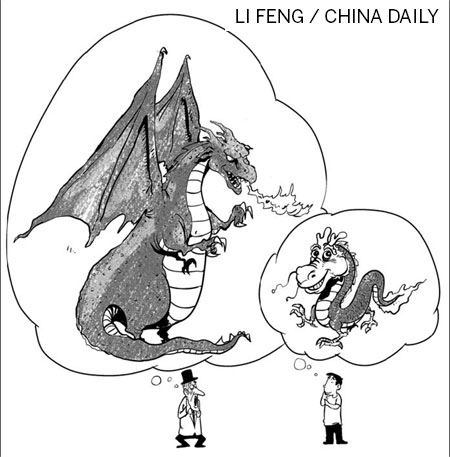Long into the West's dragon business

Had Siegfried or Beowulf not slain a European dragon but a Chinese long, those heroes would have committed an extraordinary crime. That's because the Chinese long is essentially a force of the good.
The long of China has a history (and etymology) of several thousand years and there are, according to linguist Michael Carr, more than 100 classical ones. Linguistically, it's a tragedy that many Chinese people, I mean the well-educated, English-speaking ones, are so readily prepared to call the long "dragons" - that's like voluntarily abandoning one's culture.
It is predicted that China will overtake the mighty United States in terms of the economy in a decade. Yet an ordinary Westerner has never heard about Lu Xun, doesn't know who Sun Wukong (the Monkey King) is, cannot tell a shengren from a junzi, has no inkling of Xi You Ji (The Journey to the West) or Hong Lou Meng (The Dream of Red Mansion), or any idea about the correct name for that mysterious creature that's lavishly showcased throughout the international media these days: the Chinese long.















